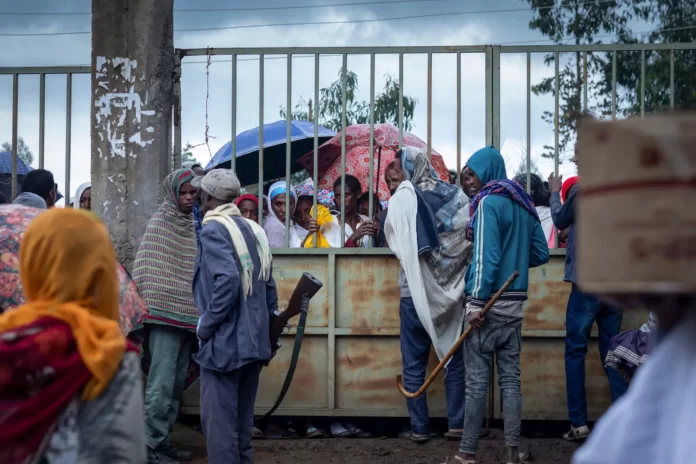Years of violent unrest and armed conflict in Ethiopia have resulted in countless abuses in regions across the country. The last few weeks show there is no end in sight.
Since April, the Ethiopian military and militias known as Fano have clashed in towns throughout the Amhara region after the government announced plans to dismantle and integrate all regional special forces in the country. The fighting has intensified in recent weeks, with increased reports of civilian casualties.
Amhara residents have been living with the consequences of the two-year armed conflict in northern Ethiopia. The region was also managing an influx of ethnic Amhara fleeing violence and targeted attacks in the neighboring Oromia region.
The federal government has responded to the growing violence with increased repression. The authorities blocked mobile internet access in early April and have arrested at least eight journalists reporting on the unrest. On August 4, Ethiopia’s federal cabinet declared a six-month state of emergency and placed the Amhara region under a military command post accountable to the prime minister.
Previous states of emergency declarations under Prime Minister Abiy Ahmed’s administration resulted in mass arrests, prolonged arbitrary detentions, politically motivated charges, and unlawful restrictions on movement and communication.
Though the emergency declaration still needs approval from parliament, the current text contains sweeping restrictions on a range of actions that could undermine basic rights. It grants the government far-reaching powers to arrest criminal suspects without a court order, impose curfews, ban public gatherings, and carry out searches without a warrant. While currently limited to Amhara, the declaration could be extended to “any area of the country as necessary.” Federal police in the nation’s capital, Addis Ababa, have already arrested Christian Tadele, an opposition member of parliament and outspoken critic of the ruling party and the government’s actions in the Amhara region.
Despite the growing violence, Ethiopia’s regional and international partners have remained largely silent. They should forcefully urge the government to protect civilians in conflict-affected areas and respect basic rights. After years of rights crises throughout the country, now is not the time for concerned governments to ease up their scrutiny and pressure.
–
Laetitia Bader is the Human Rights Watch’s Director for Horn of Africa


